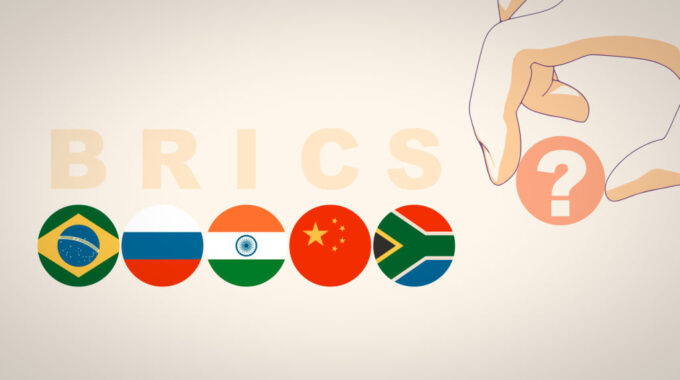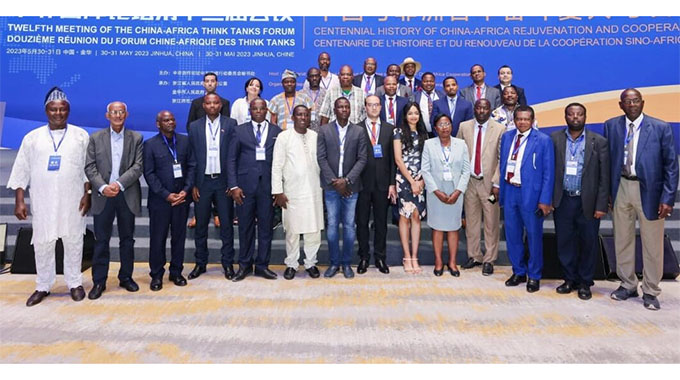Pavel Knyazev: BRICS is a unique format for inter-state cooperation

Russian Sous-Sherpa in BRICS talks in an exclusive interview with TV BRICS about the advantages of the association
Pavel Knyazev is an experienced Russian diplomat with a record of service on the UN Security Council and other international organisations. He is currently involved in Russia’s participation in BRICS and the development of ties with its developing country partners in the ‘BRICS+’ format. Pavel Knyazev is Russian Sous-Sherpa in BRICS.
In an exclusive interview with TV BRICS, the diplomat spoke about the work being done within the BRICS grouping for its potential expansion, the group’s upcoming tasks and the advantages of the five countries.
It is possible that in the foreseeable future we will stop saying ‘the Five’ and will seek a new formulation. Algeria, Egypt, Iran, Indonesia, Saudi Arabia and others have already shown interest in becoming part of the BRICS. This may not be the limit. How do you see the prospects for the expansion of ‘the Five’? What are its possible benefits?
I believe that the movement towards BRICS expansion is an objective process. Against the backdrop of large-scale geopolitical challenges and the dramatic changes taking place in the world today, the number of those wishing to join ‘the Five’ is steadily growing. Each of the candidate countries sees its own practical interest here, and this is not only an opportunity to increase economic cooperation. An important factor is the states’ desire for sovereign equality, increasing their role in the international arena, and ensuring energy and food security.
The unipolar model is becoming a thing of the past. In Asia, Africa and Latin America, are emerging new centres of power with independent foreign policies, ready to defend their national interests. That is why the announcement in 2022 of an activation discussion on the expansion of the association has generated a strong positive response in the developing world. BRICS is perceived as one of the pillars of a new, more just world order because it offers the world creative, unifying, forward-looking initiatives. It should not be forgotten that the association has enormous potential for the development of interaction in a wide range of areas.
At the moment there are active discussions within ‘the Five’ to determine the criteria and other modalities for the expansion of the BRICS. The South African chairmanship aims to make substantial progress by the Johannesburg summit in August. We will actively promote this. The issues of admitting new states require thoughtful analysis and delicate internal work by ‘the Five’ to reach consensus.
I would like to stress once again that Russia has consistently advocated deepening BRICS’ engagement with developing countries. Mechanisms of partnership cooperation ‘outreach’/’BRICS+’ have already been established within the association, which makes it possible to form a stable circle of friends of the association. An illustrative example in this regard was the high-level dialogue on development that took place during the BRICS summit in June 2022, which was attended by the leaders of 13 invited countries from the global South. The development of the outreach/BRICS+ format is one of our priorities. We are confident that this practice will contribute to joint efforts of the world majority in addressing common or similar development problems and overcoming urgent trade and economic challenges.
With which of the countries wishing to become part of the BRICS do you think the bloc’s cooperation is most promising? Or can each of these countries make a significant contribution to the development of the bloc?
All these states play a very important role in their respective regions and on the international stage in general. They all have significant economic potential and rich cultures. Most importantly, they seek to pursue a sovereign foreign policy course and are committed to a more just, multipolar world order based on mutual respect and taking into account the legitimate interests of all parties to international communication.
We are sure that all of them could contribute to the development of BRICS cooperation. But I would not want to go too far ahead, because all decisions in the association are taken solely on the basis of consensus. I will stress once again: all the countries that have declared an interest in participating in BRICS are respectable states and worthy candidates.
Russian officials and diplomats have repeatedly stressed that expanding the number of BRICS members is not a priority, since it is quality, not quantity, that matters. Then what is the priority task for the association now? Or what should be the priority?
The issue of expansion is of course important, but the tasks of strengthening the strategic partnership within the association, increasing its international authority, and influencing decision-making processes on topical global issues are also a priority.
We intend to continue to work consistently to increase the practical impact of the working mechanisms in order to improve the lives of the citizens of our countries. We are not looking for short-term or quick results. As Foreign Minister Sergei Lavrov said, “there should be no excessive emotions, we just need to work and do our job”.
Much remains to be done in terms of strengthening the political dialogue, in particular in terms of increasing the level of coordination of the BRICS countries on international platforms. In this context, the successive presidencies of India, Brazil and South Africa in the G20 (India in 2023, Brazil in 2024 and South Africa in 2025) provide a unique opportunity. There is also a wide scope for joint work within the UN.
We will continue to develop cooperation through the BRICS High Representatives in charge of security issues, Foreign Ministers.
Economic cooperation has great potential. Here, among the priority areas is the practical implementation of the Economic Partnership Strategy until 2025, which was adopted in 2020. We see digital economy, agriculture, transport and the introduction of advanced technologies in production processes, such as artificial intelligence and big data, as promising areas for our efforts. We are discussing plans to give the BRICS Contingent Reserve Arrangement the authority to use currencies alternative to the US dollar. An agreement among ‘the Five’ countries on mutual administrative assistance in customs matters is being prepared for signing.
We are determined to develop cooperation in the field of energy, including in the format of the BRICS Energy Research Platform. I am sure that the implementation of Russian initiatives to create a BRICS centre of industrial competencies, an international tourism centre, an arbitration centre and the geological platform of ‘the Five’ will have significant added value.
Many experts, including international ones, have repeatedly stressed that the advantages of the BRICS are flexibility instead of a rigid structure and mutually beneficial cooperation of all countries with each other. And what do you see as the uniqueness and advantages of ‘the Five’?
BRICS as a format for inter-state cooperation is truly unique. First of all because it is based on a shared commitment to the values of equitable dialogue and cooperation and the mutual attraction of original civilizations that represent different regions of the planet.
At the same time, it is important to understand that our association is not an integration association, in other words, it is not aimed at the formation of a single economic space with unified norms in the financial, economic, migration and other spheres. BRICS is a multifaceted strategic partnership, a necessary platform for the approximation of positions on a wide spectrum of interstate dialogue. In other words, it is a very democratic format, in which no one imposes anything on anyone. ‘The Five’ are united by a positive agenda aimed at creating favourable economic and political conditions for the internal development of our countries. And this is also the power and attractiveness of the BRICS. – TV BRICS









Comments